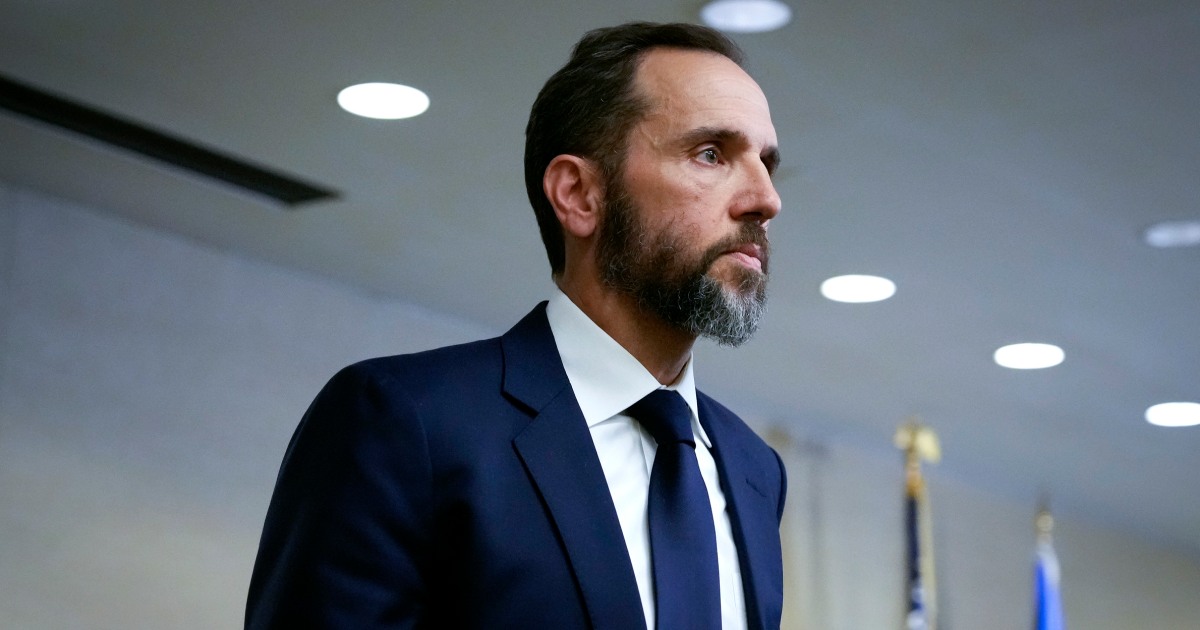Introduction
In a significant legal development, Special Counsel Jack Smith has filed a motion to dismiss the federal election interference case against President-elect Donald Trump. This move, grounded in the Department of Justice’s (DOJ) longstanding policy against prosecuting a sitting president, has ignited a complex legal debate. The implications of this decision extend beyond the immediate case, potentially influencing future interpretations of presidential immunity and the accountability mechanisms within the U.S. legal system.
Background of the Case
The federal election interference case centers on allegations that Donald Trump, following the 2020 presidential election, engaged in activities aimed at overturning the election results. These activities allegedly included efforts to enlist alternate electors, pressuring state officials, and influencing the certification process. The case was part of a broader investigation led by Special Counsel Jack Smith, appointed by Attorney General Merrick Garland in November 2022 to oversee inquiries into Trump’s actions post-election.
Special Counsel’s Motion to Dismiss
On November 25, 2024, Special Counsel Jack Smith submitted a motion to dismiss the federal election interference case against President-elect Trump. In the filing, Smith cited the DOJ’s policy that prohibits the prosecution of a sitting president, stating that this prohibition is categorical and does not depend on the gravity of the crimes charged or the strength of the government’s proof. Smith emphasized that the decision to dismiss was not a reflection on the merits of the case but a compliance with established DOJ policy.
Legal Precedents and DOJ Policy
The DOJ’s policy against indicting a sitting president is rooted in opinions from the Office of Legal Counsel (OLC), which assert that subjecting a president to criminal prosecution would unduly interfere with the executive branch’s ability to perform its constitutionally assigned functions. This policy has been a subject of debate, particularly during investigations involving sitting presidents. In this instance, the policy serves as the basis for the motion to dismiss the charges against President-elect Trump.
Implications for Presidential Immunity
The motion to dismiss raises critical questions about the scope of presidential immunity. While the DOJ policy aims to prevent the disruption of executive functions, critics argue that it may inadvertently place a president above the law during their tenure. This case could set a precedent for how future allegations of presidential misconduct are addressed, potentially prompting discussions on the need for legislative or judicial clarification regarding the limits of presidential immunity.
Reactions from Legal Experts
Legal scholars and practitioners have offered varied perspectives on the motion to dismiss. Some view it as a necessary adherence to established policy, ensuring the stability of executive operations. Others express concern that it may hinder accountability for actions taken by a president, especially those that could undermine democratic processes. The debate underscores the tension between maintaining executive branch functionality and upholding the rule of law.
Potential Impact on State-Level Cases
Beyond the federal case, President-elect Trump faces legal challenges at the state level, including cases in New York and Georgia. The DOJ’s policy does not extend to state prosecutions, leaving these cases unaffected by the federal motion to dismiss. However, the outcome of the federal case may influence public perception and the strategic approaches of state prosecutors. Additionally, questions arise regarding the applicability of presidential immunity in state courts, a matter that may require judicial interpretation.
Broader Implications for Electoral Accountability
The dismissal of the federal election interference case has broader implications for electoral accountability in the United States. It highlights potential gaps in the legal framework for addressing alleged misconduct by a president, particularly actions that may affect the integrity of elections. This situation may prompt lawmakers and legal experts to consider reforms aimed at ensuring that mechanisms are in place to hold presidents accountable without compromising the functions of the executive branch.
Conclusion
See more Update My News



